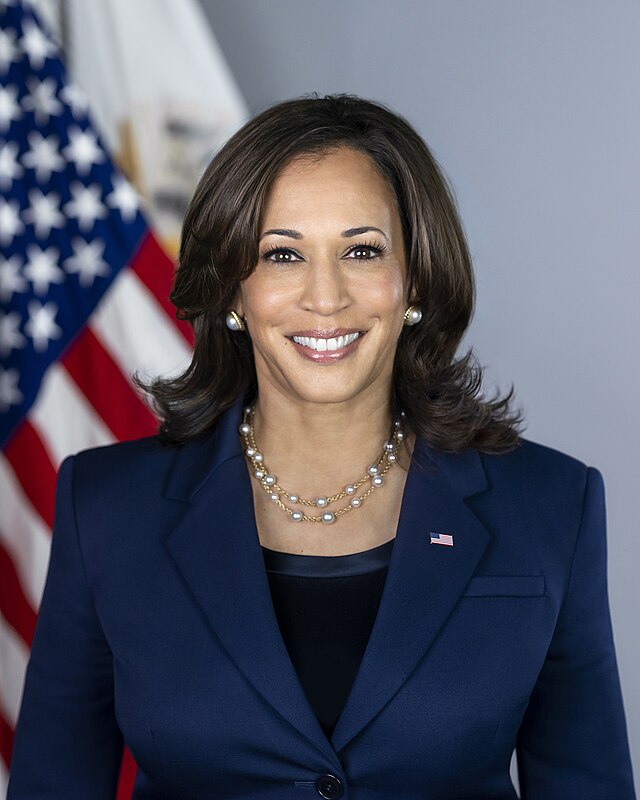The U.S. political landscape has become more contentious as the battle for the presidency intensifies. Republican frontrunner Donald Trump appears to be gaining significant momentum, pushing his campaign closer to a potential victory. Meanwhile, Vice President Kamala Harris has canceled a key public appearance, raising questions about the future trajectory of her political career as the 2024 election draws nearer.
Trump, whose campaign has been marked by controversial statements and contentious legal battles, has seen an uptick in support among key demographic groups, including suburban voters and independents. The former president’s ability to energize his base has been a defining factor in his rising popularity. His influence continues to grow despite the ongoing legal challenges surrounding his actions during the January 6, 2021, Capitol riot and his handling of classified documents.
Many political observers attribute Trump’s increasing strength to his strong messaging on issues such as immigration, crime, and economic recovery. The GOP primaries have largely focused on the former president’s grievances with the current administration, with Trump using his platform to rail against President Joe Biden’s policies. His attacks on the administration’s handling of inflation, energy prices, and foreign policy have resonated with many voters frustrated by what they perceive as an inability to address domestic issues effectively.
However, the more alarming aspect of Trump’s campaign is his growing appeal across diverse groups within the Republican Party. His rhetoric, once seen as divisive, is now resonating even with moderate conservatives, particularly in battleground states. As the race progresses, Trump’s dominance in the polls suggests that the GOP establishment is slowly being forced to accept his stronghold on the party, despite initial efforts to distance themselves from him after the 2020 election.
At the same time, Vice President Kamala Harris’s canceled speech on November 5, 2024, has raised eyebrows. The Vice President was scheduled to address a critical fundraising event aimed at rallying support for Democrats ahead of the midterms, but her abrupt withdrawal from the engagement has sparked speculation about the stability of the current administration’s political standing.
Political analysts have pointed out that Harris, once a rising star in the Democratic Party, has faced consistent challenges in gaining significant traction with voters. A combination of her record as both a U.S. Senator and Vice President has resulted in mixed reviews. Supporters praise her advocacy for social justice, climate change, and women’s rights, while critics have noted that her approach has often lacked the clarity and effectiveness needed to address the country’s most pressing issues.
Harris’s recent struggles to connect with voters are especially apparent in swing states, where polls have shown her approval ratings lagging behind those of other prominent Democratic figures. Despite her high profile in Biden’s administration, her public appearances have often been overshadowed by the President’s higher approval numbers. The impact of this growing disconnect is particularly visible among African American voters, a critical base for the Democrats, who have expressed dissatisfaction with the lack of tangible progress on issues like police reform and economic inequality.
The cancellation of the speech also highlights ongoing concerns regarding Harris’s ability to galvanize the party’s base as the election season heats up. Some strategists have even suggested that Biden’s campaign team might be reevaluating her role in the administration’s election strategy. With Trump gaining ground in the polls, the Democratic Party is facing growing pressure to recalibrate its messaging and find ways to energize the electorate ahead of the 2024 election.
One possible shift in the political landscape could involve Harris stepping aside from the campaign trail to allow other figures within the party to take center stage. Reports have surfaced indicating that Biden’s campaign is considering recalibrating its strategy to shift focus toward a more dynamic outreach to younger voters and moderates who may feel alienated by the administration’s current direction. The party’s handling of critical issues like healthcare, education, and climate change will likely play a pivotal role in determining how successful this strategy can be.
While the Biden-Harris ticket faces these challenges, their opponents in the Republican camp continue to consolidate power. Trump’s GOP challengers, including Florida Governor Ron DeSantis and former South Carolina Governor Nikki Haley, have failed to make a significant impact on the primary race. Trump’s dominance within the party shows little sign of waning, and as the race to the general election draws closer, his ability to attract key voters may prove to be his most potent weapon.
Biden’s handling of the economy remains a central issue for the administration as inflation continues to take its toll on American households. While job growth has remained strong, the rising cost of living and concerns over the administration’s response to inflation have driven many voters into the arms of Trump and other conservative figures. The Republican Party’s message on fiscal policy has been particularly appealing to disillusioned voters, many of whom are looking for a change from the current economic environment.




 Hiranandani’s Bangladesh LNG Plans Face Scrutiny
Hiranandani’s Bangladesh LNG Plans Face Scrutiny 